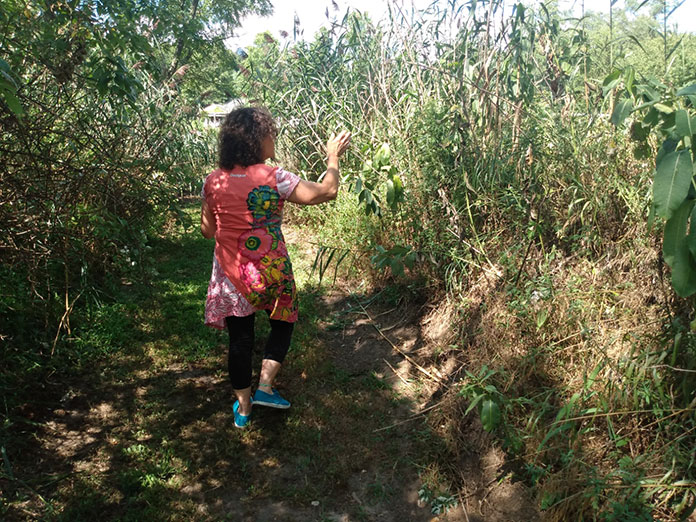
HOWELL – The Howell Green Team is often mentioned at the township’s council meetings, planning board discussions, or zoning board applications. The term is often used in a generic sense, to include anything that helps to keep the undeveloped, rural quality of the township in place.
Under the directive of their mission statement, the Howell Green Team reaches into a myriad of projects and community-based efforts, all with the expressed purpose of moving Howell Township into the Twenty-First Century in a fiscally responsible, eco-friendly way.
“The Green Team always strives to improve the environmental sustainability of Howell Township,” says group member Nick Huszar, who also serves on the Environmental Commission and as the Vice-Chairman of the Planning Board.
Environmental interests are often seen as being at odds with commercial development, and Howell Township is no exception. But Howell Township looks to bridge that divide by utilizing a time-tested methodology.
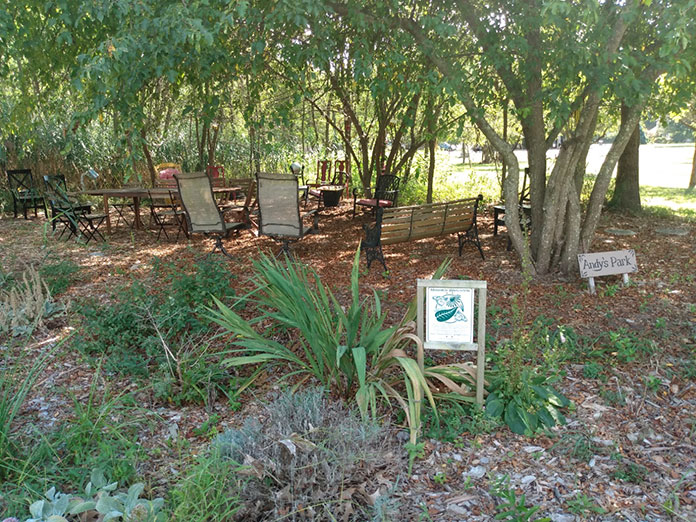
Whether it was done consciously or not, Howell employs a system that can only be described as a modern interpretation of the Hegelian Dialectic. By incorporating the thesis with the antithesis to form a cohesive synthesis, the township resolves two seemingly contrary ideas, namely development and conservation, into one blended direction for the town.
On the Planning Board itself sits a least one Environmental Commission member at any given time. That means that when the evidence is presented, before it ever reaches a point where the public voices their concerns about the proposed construction, one of the township’s green watchdogs has already been mulling over a project’s environmental impact.
“I believe the transparency and open communication between Planning, Zoning, Council and the Green Team are outstanding and lead to very good things for the future of Howell residents,” says Huszar, a licensed site remediation professional and environmental geologist who has degrees that include geological sciences and mathematics. “I have been working in the environmental field for over twenty years and love Howell Township. The two go hand in hand.”
In the past year, the township joined the “Sustainable Jersey” movement, in order to become a certified “green” community. In doing so, the township puts forth programs and initiatives that foster the idea of ecology within the community itself. As a result of the partnership with Sustainable Jersey, the township adopts the organization’s directives and guidelines.
Howell’s Green Team leadership starts from the top, where participants include two members of the Town Council, and the Preservation Task Force, which has another council member as an alternate board member.
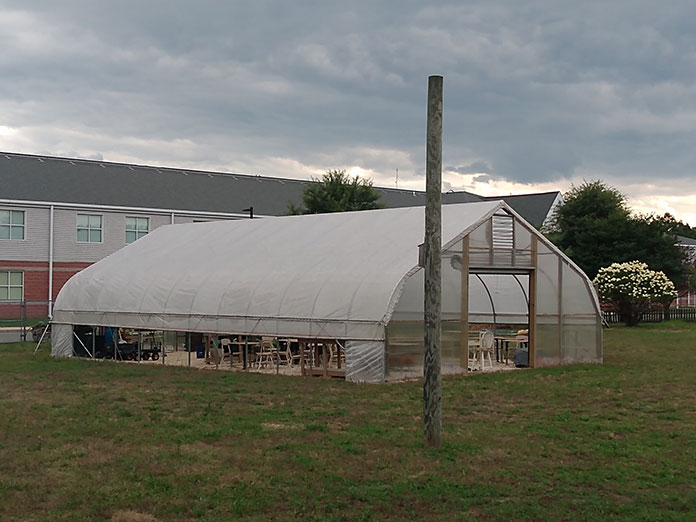
“I’ve been on the Green Team since it started,” said member Mary Ann Cernak. “I actually volunteered for it. I was, at the time, also serving on the Lake Restoration and Wildlife Management Committee. The Green Team was forming, and they asked if anybody from the committee would like to join, so I said, ‘yes,’ because I was interested in sustainability.” Cernak, who has a doctorate in clinical social work from NYU and a master’s in social work from Columbia University, headed up a mental health team that worked with families in towns like Bound Brook and Manville due to the flooding from hurricane Floyd.
“As I began to work less, I got more involved with looking at how climate change was impacting families and children. Once you’re working in natural disasters and you saw flooding and stuff, you really got a sense of what’s going on.”
Recent projects put forth by the town include a pollinator garden that the Howell Green Team and Shade Tree Commission planted at the Community Wildlife Habitat, which was facilitated by a $2,000 grant from PSE&G and Sustainable Jersey. In addition, the township had a seedling giveaway where residents could come and get young trees to plant at their own homes.
The funding for such projects is achieved by first writing a proposal to secure a grant. Where certain eligible grants may fit the needs of more than one green organization in town, duplication of efforts or competition for such grants is handled through a cooperative effort between the groups, facilitated by the Environmental Commission.
“It’s a democratic kind of thing,” says Cernak regarding the Green Team’s decision-making process. “And then you see what’s the most pressing need. What’s the most likely to get funded? Then what we try and do is to do some kind of prioritization. What’s going to impact the most people? What place could really use some help?”
But the projects proposed for the town are not just to advance the mission statement of the Green Team. It is necessary for the township to show results from the grant money they acquire in order to get re-certified every three years as a Sustainable Jersey member community.
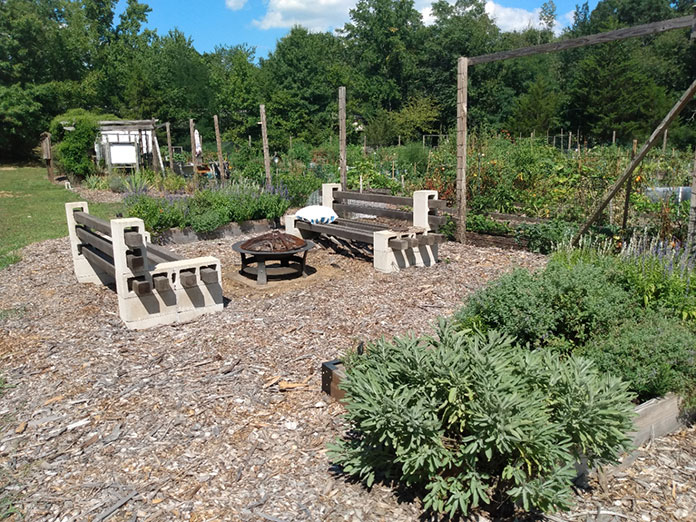
“Being certified and a member of Sustainable Jersey makes a town eligible to apply for grants,” explains Cernak. “Sometimes good proposals get funded and sometimes they don’t.”
While projects are important, township officials know that education is the real key to long-term results and sustainability. To that end, the Green Team works with township schools to set up projects geared towards the environment. Whether it is a low-cost project where children incubate quail eggs in their classrooms, or participatory programs that promote plastic reduction, reaching young citizens to facilitate a green mindset is the goal.
“Once kids get that message,” advises Cernak regarding changing things to be more eco-friendly, “[it] is really very positive. It brings it to life more in terms of working with students, and you’re doing projects in the community.”
The Green Team has worked to get grants that have set up other entities in the township that not only promote green living, but also educates children. Two of the larger projects which have become self-sustaining include the Howell Organic Community Gardens (HOGC) and a hothouse located on the property of Middle School South.
Following its inception, the HOCG has since become a 501(c)(3) organization, and now runs community outreach programs and grows fruits and vegetables for local food pantries. Similarly, following its construction, the hothouse at the middle school is run by the students, who administer and grow plants while learning about eco-friendly practices that they can foster in their own homes.
But education is not just for children, and it is equally important to get adults to see the light as well. Recently the Howell Shade Tree Commission promoted a lecture at the Manasquan Reservoir on designing a wildlife garden.
But sometimes Howell achieves its green objectives not through action, but through passivity. At a recent Town Council meeting, for instance, Township Manager Joseph Clark announced that after consulting with the Shade Tree Commission, “because of the cost of gas, and the amount of time it takes to mow some of our smaller parcels, were looking at restoring them to meadow or pollinator gardens.”
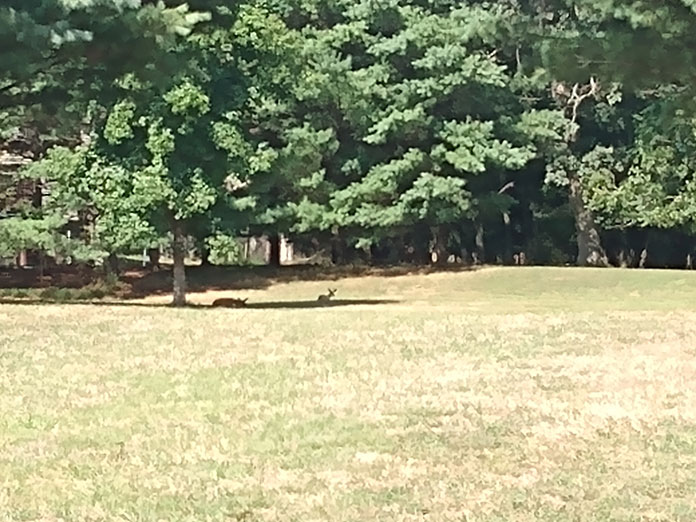
While Howell’s green groups work to keep the township a pleasant, environmentally friendly place to live, they know that the participation of the township residents will ultimately be necessary to sustain the momentum.
“We are always searching for grant money for new projects, always looking for new members with new ideas,” says Huszar, “always looking towards the future, and how to make the Township better and greener for future generations.”







